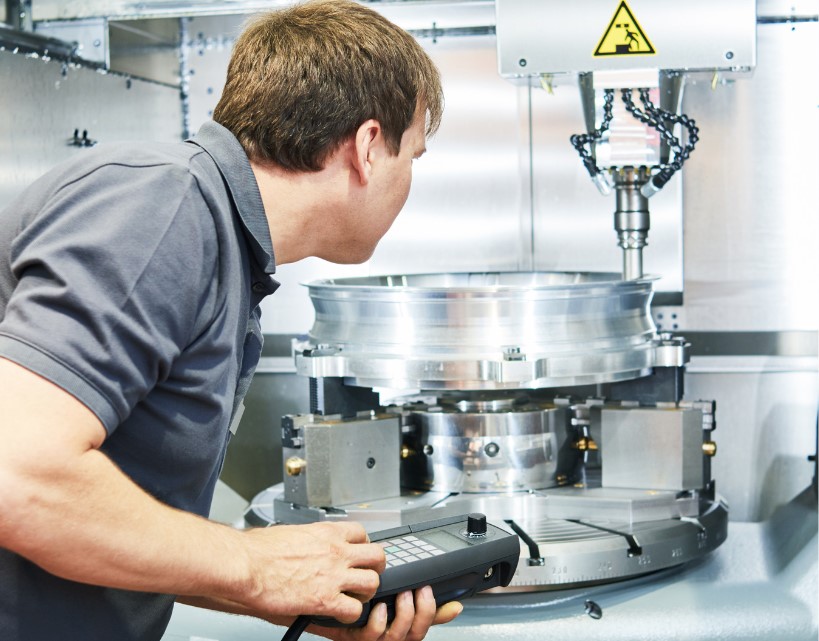In the last few decades, Computer Numerical Control (CNC) CNC machining has revolutionized many aspects of engineering and manufacturing. CNC Machining, which integrates the latest technology in manufacturing with traditional techniques, has emerged as a dominant way to manufacture precision products and components to suit a broad range of industries. This article examines the mechanics, advantages, and numerous applications of CNC machining, highlighting its revolutionary impact on modern engineering.
The Mechanics of CNC Machining
CNC machining is a subtractive process of manufacturing that removes material from a solid block, or workpiece to give it the shape you want. The process is guided by pre-programmed software which controls the movement of the machinery. The code generated for CNC machines differs depending on the type of machine and the size of the component being manufactured. The principle behind it is the same. High-speed cutters precisely sculpt material in order to create the finished product.

Precision is the primary benefit of CNC processing. Digitalization allows for highly precise and reliable production. This minimizes human error, while ensuring consistency between batches. This is crucial for industries such as aerospace, medical devices and automotive manufacturing, where slight deviations can have severe consequences.
The role of digital computers in CNC Machine Operations
Digital technology lies at the core of CNC the precision and effectiveness of CNC. CNC machines are operated using specialized software that manages the manufacturing process in its entirety. This software converts computer-aided design (CAD) models into a series of precise instructions, which the CNC machine then follows to create the part. These instructions define everything starting from the cut’s depth and the angle, to the speed of the tool.
In larger-scale industrial facilities, computers are often integrated directly into CNC machines, which allows for seamless communication and control. This integration allows constant adjustments in real time and monitors to ensure the highest performance, as well as reducing the amount of downtime. Automation of CNC machines also allows for continuous operation, greatly increasing productivity and reducing the time it takes to complete.
CNC Machining: Its Advantages
CNC machining offers numerous advantages over traditional manufacturing techniques. The ability to produce intricate, complex parts with a high level of precision is among the greatest advantages. The precision of CNC machineries eliminates the requirement for manual adjustments and Rework, which reduces waste while increasing efficiency. CNC machines also work continuously and are great for large production runs.
CNC machineries have another benefit in its versatility. A single machine is able to produce different types of parts by simply altering the program. CNC can be adapted to any need and is ideal for prototyping as well for mass production. This allows manufacturers to quickly respond to changes in market demand.
Automating CNC machines improves safety at work. Through reducing the necessity for manual intervention, the possibility of injuries and accidents are reduced. Moreover, the consistent quality of CNC-machined components improves the product’s quality and reliability, adding to customer satisfaction and credibility of the brand.
CNC Machining Services Benefits for Industries
CNC machines are used in a myriad of industries. All benefit from its efficiency, precision, and versatility. In aerospace, CNC machines produce critical components that have to meet strict quality and safety standards. CNC machines are utilized in the medical device industry to make complex implants and surgical instruments where precision is the most important factor.
The automotive industry uses CNC machineries to produce components for engines, transmission parts as well as intricate interior and exterior features. Similar to this, the electronics sector benefits from the ability of CNC to make smaller, intricate components for consumer electronics, communication devices, and other electronic devices. Even the jewelry and art industries leverage CNC technology to create intricate designs and unique pieces.
The Future of CNC Machining
CNC machining capabilities are expected to expand as technology advances. Multi-axis processing and additive manufacturing integration are expected to continue pushing CNC technology’s limits. Also, the continuing advancement of artificial intelligence and machine learning will likely enhance the efficiency and precision of CNC processing.
CNC machining that is unmatched in quality, efficiency and versatility has had a significant impact on modern engineering and manufacturing. The capability of producing high-quality, complex parts can make CNC machining an indispensable instrument in a wide range of industries. CNC machining, as technology develops is expected to remain an integral component in manufacturing’s future.